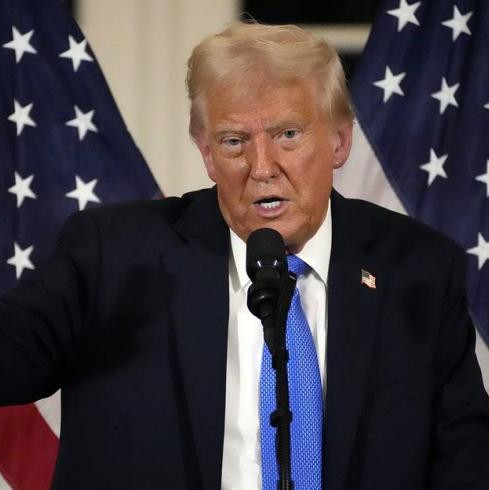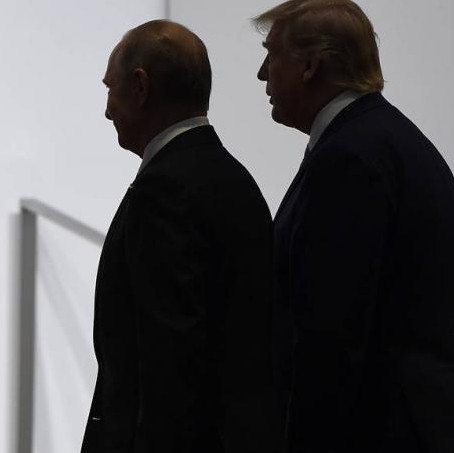The so-called "Operation Rubicon" is estimated to be "one of the most successful intelligence operations of the post-war period" on about 280 pages of a secret file that has ended up in the hands of the Swiss, German and American media, the Swiss swissinfo.ch portal stated recently.
This means the use of specially mounted encryption and decryption devices produced by the Swiss firm Crypto AG by the US CIA and NSA special services in cooperation with the German foreign intelligence service BND to intercept hundreds of thousands of messages sent by government agencies, embassies and military units of more than a hundred countries on different continents. All of these states have been clients of Crypto AG for decades. After the scandal erupted, mass media of different countries published dozens of articles with a detailed account of the Swiss company's creation, as well as the history of its financial relations with the US and German intelligence services.
At that, hardly anybody asked the question as to why did the scandalous exposure take place right now, and who suddenly found it profitable to reveal the truth about Operation Rubicon? Is it fully disclosed? It was from these positions that the Swiss Blick newspaper questioned German intelligence historian Wolfgang Krieger. The Marburg University Professor had the opportunity to get acquainted with many materials of the secret file revealed by the American newspaper Washington Post, the ZDF TV channel (Germany) and the Rundschau TV program (Switzerland). The expert admitted that he was most impressed by the data on customers, delivery dates and the list of countries where encryption equipment was sent from the crypto AG workshops. At the same time, the Professor has long been acquainted with the fact that this firm collaborated with the NSA and BND secret services.
As a source of information, Wolfgang Krieger named, for instance, the book "Inside the company: CIA Diary" published in 1975, in which former CIA agent Philip Agee describes the importance of Crypto AG for the CIA. Besides, Wolfgang Krieger noted that much of what has been published over the past decade about the Swiss company's ties to the United States is based on materials declassified in 1955. These documents elaborate on cooperation plans between the company's Swedish founder Boris Hagelin and the American NSA intelligence service. There, by the way, the matter is the upcoming release of so-called "clean" equipment for NATO and Switzerland, and mounted equipment for South American countries.
However, Professor Krieger admits that the Washington Post did not provide an opportunity to any of the "outsiders" to read the 280-page file on Operation Rubicon in full. And it is not for the first time that the NSA declassifies materials about its activities. The expert believes that we are dealing not with another "leak", but with a targeted action of this American intelligence service. Thus, the German expert draws attention to the absence of final evidence in the file, i.e. original documents, telegrams and wiretapping transcripts. Also, the full amount of information collected over the years by US and German intelligence agencies about the ruling regimes, say, in Argentina, Chile, Panama and Iran, remains "under the radar".
So why did the US NSA intelligence agency decide to lift the veil on such a successful and long-running operation right now? Professor Wolfgang Krieger, in an interview with the Swiss Blick newspaper, named two main reasons, in his opinion. First, since the failure of the NSA story with Edward Snowden, this intelligence agency has been under the pressure of negative public opinion and is trying to redeem its image, focusing on its lofty activities in the interests of the government and the people of the United States. Secondly, traditional ciphering equipment is already a thing of the past, with products of the former Crypto AG being irrelevant today, because encryption technology has moved so far forward.
It is highly unlikely that the attempts of the US intelligence service to wash this out and convince the whole world of its "purity of thought" will prove successful. Their allies and partners have once again seen that trusting "friends" from overseas is more trouble than it is worth. NSA's wiretapping of hundreds of politicians and state institutions in Germany, when the Americans even kept track of Chancellor Angela Merkel's mobile phone, has become a classic example. Moreover, Washington did not even consider it necessary to respond to the German Bundestag's indignant demand to explain such unfriendly actions.
As for Switzerland, the current scandal led to the revocation of the export license issued here to the company Crypto International (the successor of Crypto AG), with the country's Parliament creating its own special investigative commission as the image of Switzerland as a neutral country and a reliable intermediary got under blow. However, the scandal seems to be gradually subsiding, and the initiated investigation will end up with a publication of sort of a formal document. That is, go up in smoke, as the saying goes.









